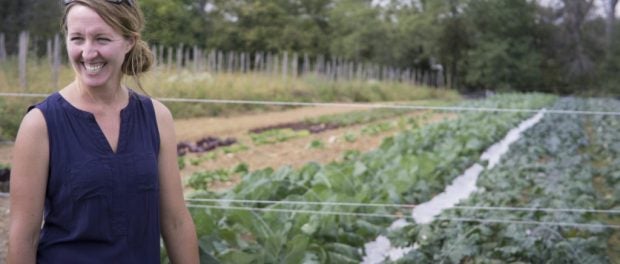Whole Farm Revenue Protection from RMA

Whole Farm Revenue Protection – Insuring the Whole Diverse Farm Just Got Better
The USDA Risk Management Agency (RMA) just announced important .jpg) improvements to its Whole Farm Revenue Protection (WFRP) policy, which includes critical changes developed by the National Center for Appropriate Technology (NCAT) and its policy and research partners over the past 10 years.
improvements to its Whole Farm Revenue Protection (WFRP) policy, which includes critical changes developed by the National Center for Appropriate Technology (NCAT) and its policy and research partners over the past 10 years.
Whole Farm Revenue Protection offers a means to provide subsidized crop insurance protection for farms of all sizes and any type of crop or livestock product. Because coverage is based on the farm’s historic adjusted gross revenue, the value of the whole farm’s production is protected and the policy is available nationwide regardless of the crops grown.
One critical change is to lessen the impact of historically high levels of revenue variability that many farmers who use Whole Farm Revenue Protection experience. These changes are modeled after the same adjustments in single crop revenue policies that cover most major commodity farmers. The difference is that the adjustments are made to historic revenue rather than the historic yields of a single crop being insured. Essentially this change will lower the deductible and improve protection of farm income.
Jeff Schahczenski, an agricultural economist with NCAT, has worked on Whole Farm Revenue Protection for many years and expects that this change will expand use of WFRP by farmers nationwide.
“WFRP is the only crop insurance policy that protects all of the products a farmer produces, incentivizes diverse crop and livestock systems of production and is available to all sizes and types of farms,” said Schahczenski.
Whole Farm Revenue Protection is the first agriculture insurance policy that provides substantial premium discounts for those who grow more than three crop or livestock products. According to Schahczenski, it is ideal for organic and sustainable farming operations.
Is Organic Farming Risky?
NCAT is continuing its efforts to improve risk management options for farmers, most recently undertaking an extensive research project funded under the Organic Research and Extension Initiative (OREI), which is part of the National Institute for Food and Agriculture (NIFA) program.
The project – entitled “Is Organic Farming Risky?” – will be completed in September. Project partners have developed research papers and improved educational materials about WFRP, along with an in-depth analysis of crop insurance and its impact on the adoption of organic production systems.
- For more information about the new WFRP policy, visit the ATTRA website and the RMA website.
- Visit www.ncat.org for more information about all of NCAT’s programs and services.
Since 1976, the National Center for Appropriate Technology (NCAT) has been helping people by championing small-scale, local and sustainable solutions to reduce poverty, promote healthy communities and protect natural resources. More information about its programs and services is available at www.ncat.org or by calling 1-800-ASK-NCAT.
- Learn more about farm risk management at https://www.beginningfarmers.org/farm-business-planning/risk-management/
- Find tons more great farming resources at https://www.beginningfarmers.org/additional-farming-resources/




 Your Privacy Choices
Your Privacy Choices
Leave a comment